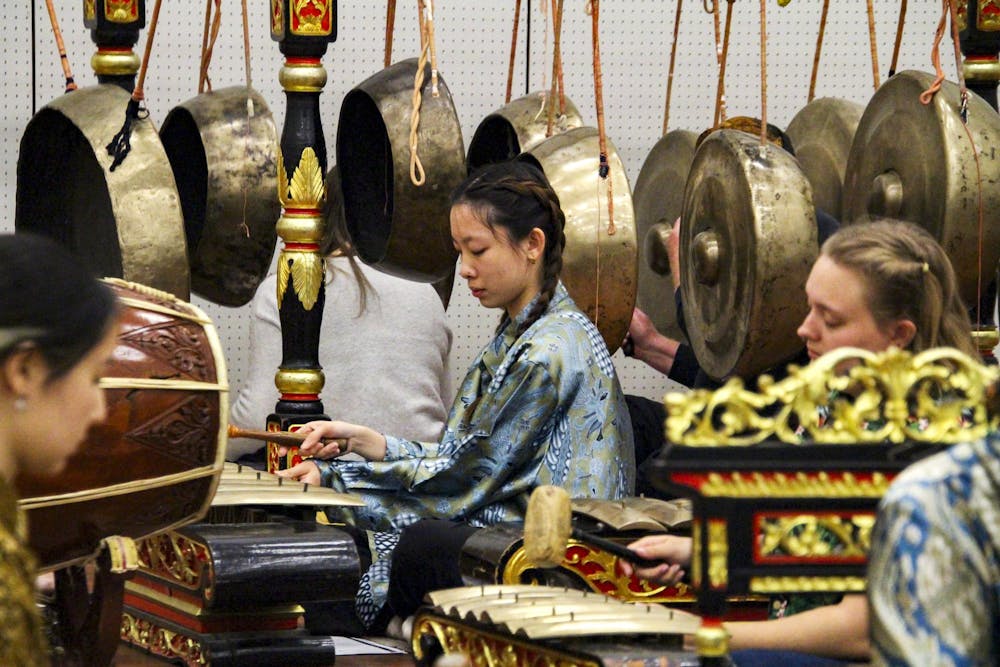On Wednesday, The UNC Gamelan Nyai Saraswati ensemble hosted their Fall concert with over 50 people in attendance. The concert was in Hill Hall, and featured a variety of instruments, including gongs, xylophones, flutes and metallophones.
The ensemble started performing in 2001 and is open to UNC students and community members.
UNC Gamelan Nyai Saraswati ensemble performs Javanese Gamelan music, a Southeast Asian classical music tradition based around a percussion ensemble. Javanese Gamelan specifically comes from Java, the most populated island in Indonesia.
At the end of the show, audience members were allowed to come on stage and perform with angklung instruments that were donated by the Indonesian Embassy.
John Caldwell, the ensemble director, is a professor in both the UNC Music Department and the Department of Asian and Middle Eastern Studies. Caldwell spoke during the performance, explaining the songs' backgrounds and some of the music theory behind the pieces.
The title of the show was “Asmaradana – The Fire of Love.” Asmaradana means “romance” in Javanese, and Caldwell said that the title refers to a Hindu legend about the god and goddess of love being incinerated and reincarnated as humans. Caldwell said most Gamelan music is written to accompany theater, and stories like these are common in Javanese Gamelan music because of the high level of cultural influence from India that goes back over 1,000 years.
After the performance, audience members were invited to come to the stage to touch and learn about the different instruments. Aarya Nagrani, a junior at UNC who attended the show, said that her sister plays the xylophone, and she liked seeing how the xylophones used in Gamelan are made of different materials from the one her sister plays.
Liam Cuppett is a junior at UNC who attended the show. He had been in the ensemble his first four semesters at UNC, and said that it was a surreal experience to hear the Gamelan from the audience instead of playing on stage. Cuppett said that while he was in the ensemble, he enjoyed experimenting with different instruments.
“We encourage people to switch around, and people kind of share their expertise in different instruments," Cuppett said. "It's a very learner-friendly environment.”



